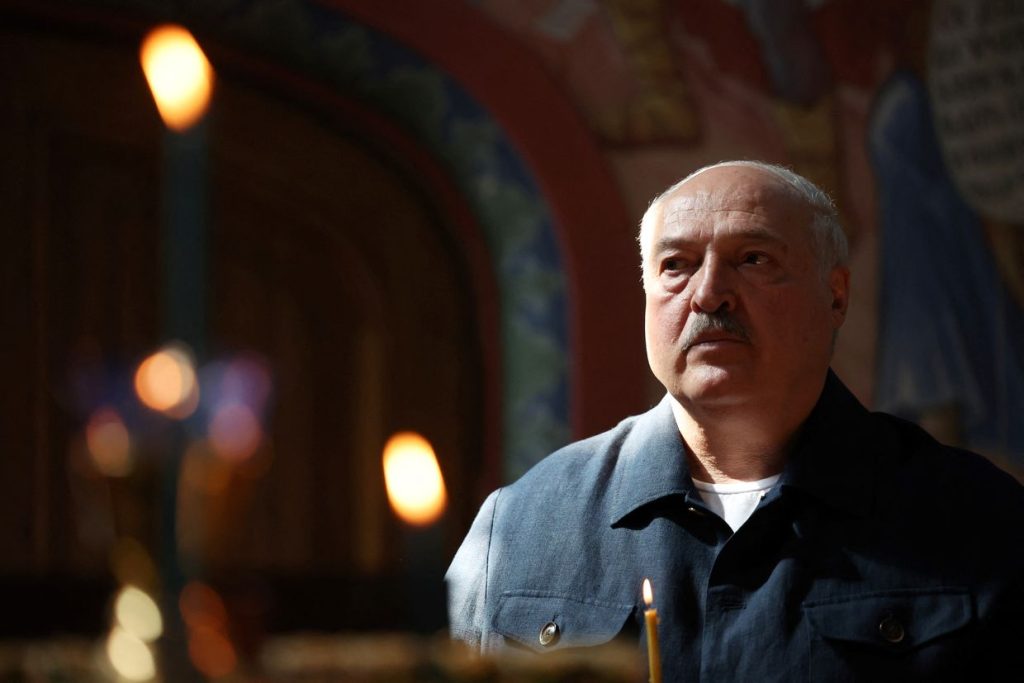Belarusian dictator Alexander Lukashenko claimed in an interview on Aug. 15 that Belarus had moved a third of its army to the border with Ukraine earlier in the summer. This action was allegedly taken in response to a build-up of Ukrainian troops, which Lukashenko said had been prompted by a misinterpretation of preparations for Belarus’s Independence Day celebrations on July 3. He stated that large numbers of men and materiel were moved in preparation for the event, leading to concerns from Kyiv and its Western allies that it could be a possible redeployment for a repeat of Russia’s invasion. Lukashenko claimed that Ukraine had 120,000 troops on the border with Belarus, which were then “boosted” with even more troops, leading him to redeploy a third of the army to reinforce the border. However, a resolution was reached through diplomatic channels, and both sides withdrew their additional forces.
Despite the brief moment of cooperation between Ukraine and Belarus regarding the border situation, the rest of the interview took a more hostile tone, with Lukashenko firmly backing Russia and Putin in their aggression against Ukraine. He suggested that if Belarus were to come under ground attack, it could use the tactical nuclear weapons that Russia reportedly placed in Belarus in 2023. Lukashenko also accused “high-ranking” individuals of American origin of stoking the war with the aim of destroying all three countries. In a separate development, Lukashenko pushed a bill to criminalize violence and threats against incumbent or former presidents of Belarus and unauthorized reports on movements of the Belarusian leadership.
Amidst escalating tensions, Minsk summoned EU and Ukrainian diplomats and addressed the UN and OSCE over an alleged drone incursion from Ukraine. Lukashenko’s actions and statements reflect a complex web of geopolitical dynamics in the region, with accusations, military movements, and diplomatic responses coming into play. The situation highlights the fragile balance of power and shifting alliances in Eastern Europe, as countries navigate their relationships with each other and with larger global powers. Belarus’s actions and Lukashenko’s rhetoric indicate a willingness to align with Russia and Putin, while also asserting its own capabilities and defenses against potential threats from neighboring countries.
The interview with Lukashenko sheds light on the intricate maneuvers and communication strategies employed by countries in response to perceived threats and provocations. The deployment of troops, mention of nuclear weapons, and accusations of external involvement in conflicts reveal the complex nature of international relations and security dynamics in the region. Belarus’s position on the border with Ukraine, as well as its connections with Russia and other global powers, underscores the strategic importance of the country and its role in shaping events in Eastern Europe. The diplomatic efforts to de-escalate tensions and resolve conflicts through dialogue highlight the importance of communication and negotiation in preventing potentially dangerous scenarios from escalating further.
As the situation continues to evolve, it is crucial for independent journalism to provide accurate and detailed coverage of events in Ukraine and neighboring countries. Support for independent media outlets can help shed light on complex issues and provide a counterbalance to official narratives and propaganda. By supporting independent journalism in Ukraine and other regions facing political tensions, individuals can contribute to the dissemination of information, the protection of press freedom, and the promotion of transparency and accountability in governance. Joining the fight to support independent journalism can play a vital role in promoting democracy, human rights, and peace in conflict-affected regions such as Eastern Europe, where accurate and unbiased reporting is essential for understanding and addressing complex challenges.














